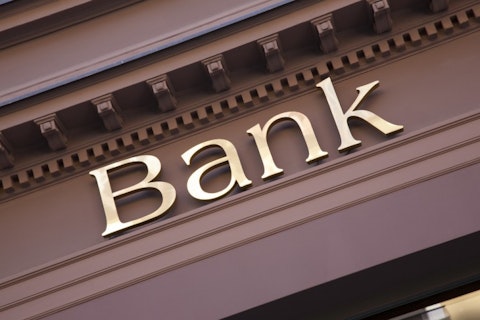How are banking stocks usually reacting to an interest-rate hike? While one rule of thumb says most bank stocks tend to outperform following an interest rate increase, there are numerous examples of contradictory bank-sector reactions to previous interest-rate changes. There is no straightforward answer to the aforementioned question. However, the largest banks, which have substantial amounts of assets in federal-fund securities and other low-yielding investments, will most likely benefit from rising interest rates immediately. Only a few investors anticipated the Federal Reserve to make a move during this summer a little more than a month ago (which explains why most banks did not receive too much attention from the hedge fund industry during the first quarter), mainly due to investor worries over the broader market sell-off in equities and commodities in early 2016. But the odds that the Fed will pull the trigger during the summer have been increasing in the past several weeks, so the largest banks may be receiving more attention from the hedge fund industry and the investment community at the moment. The federal-funds futures market shows that the odds of a rate increase at the Fed’s July policy meeting are 58%, so one should definitely have a look at the pool of banks that will most likely benefit from higher rates. For that reason, the following article will examine how the hedge funds tracked by Insider Monkey were feeling about five large banks during the first quarter of 2016.

Kevin George/Shutterstock.com
At Insider Monkey, we track around 760 hedge funds and other institutional investors. Through extensive backtests, we have determined that imitating some of the stocks that these investors are collectively bullish on can help retail investors generate double digits of alpha per year. The key is to focus on the small-cap picks of these funds, which are usually less followed by the broader market and allow for larger price inefficiencies (see more details about our small-cap strategy).
#5. Citizens Financial Group Inc. (NYSE:CFG)
– Investors with long positions as of March 31: 51
– Aggregate value of investors’ holdings as of March 31: $1.25 Billion
Citizens Financial Group Inc. (NYSE:CFG) fell out of favor with the hedge funds monitored by Insider Monkey during the first quarter of 2016, as the number of funds with stakes in the company dropped to 51 from 67 quarter-over-quarter. Similarly, the overall value of those stakes plummeted to $1.25 billion from nearly $2.17 billion. The 51 investors amassed 11% of CFG’s outstanding common stock. Citizens Financial Group, one of the oldest and largest financial institutions in the U.S., has seen its market value decline by 12% since the beginning of 2016. CFG’s credit metrics and asset quality remained relatively steady during the first quarter of the year. For instance, the company’s nonperforming loans were $1.1 billion at the end of March, down $57 million year-on-year. Meanwhile, CFG’s average loans and leases increased $6.3 billion or 7% year-over-year to $100.3 billion. Ken Griffin’s Citadel Advisors owns 5.67 million shares of Citizens Financial Group Inc. (NYSE:CFG) as of the end of March.
Follow Citizens Financial Group Inc (NYSE:CFG)
Follow Citizens Financial Group Inc (NYSE:CFG)
Receive real-time insider trading and news alerts




